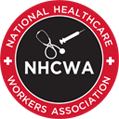
Certified Pharmacy Technicians (CPhTs) can work in retail pharmacies and hospitals and are responsible for helping licensed pharmacists perform tasks such as:
- Managing medication inventory
- Weighing and measuring medications
- Mixing medications or preparing ointments
- Packaging and labeling prescriptions
- Dispensing prescriptions
- Preparing insurance forms for processing
CPhTs also do routine pharmacy tasks, such as answering phone calls from customers and accepting payment. They work under the supervision of licensed pharmacists who must review all prescriptions before they are given to patients.
Where Does a Pharmacy Technician Work?
Pharmacy technicians who work in retail pharmacies help licensed pharmacists dispense prescription medications. CPhTs working in hospitals and other medical facilities are often responsible for preparing a greater variety of medications, including intravenous drugs. They may also be responsible for making rounds in the hospital and giving medications to patients.
Some states and employers require pharmacy technicians to be certified. Even where it is not required, certification can be a benefit when applying for a job. In some cases, healthcare employers will pay for pharmacy technicians to take the certification exam.
The Importance of Certification
NHCWA Certification allows healthcare workers and employers to validate their knowledge and abilities and the mastery of industry-specific skills. Achieving certification helps healthcare organizations demonstrate that their business is run effectively by qualified staff. Meanwhile, recertification reflects a commitment to ongoing learning and improvements. Additionally, organizations that are NHCWA certified can successfully demonstrate to patients, employees and other companies that they use industry-respected best practices.
NHCWA Certification Benefits Patients and Families: NHCWA Certification provides validation that a medical organization and its employees have demonstrated the necessary knowledge and skills to meet the complex requirements of the healthcare industry. This ensures high quality care delivery, which can give patients and families peace of mind.
NHCWA Certification Benefits Healthcare Professionals: In order to become certified, healthcare professionals must validate their industry-specific knowledge and skills. Passing the certification process allows them to position themselves for appropriate recognition, and it can give them a critical sense of confidence and achievement.
NHCWA Certification Benefits Employers: Certification is a vehicle for hospitals to distinguish themselves from competitors. It demonstrates to consumers that the organization attracts only the most skilled and experienced healthcare workers. Achieving NHCWA certification (and meeting the continuing education requirements necessary to maintain it) also contributes to an environment of professionalism and a culture of employee retention. This is especially critical given the severe shortage of qualified healthcare workers.
NHCWA Pharmacy Technician Certification Requirements:
One of these requirements must be met:
- Graduation from an allied health vocational training program
- One year of work experience in the field
- Military experience/training in the field
- Reciprocity from another certifying agency
